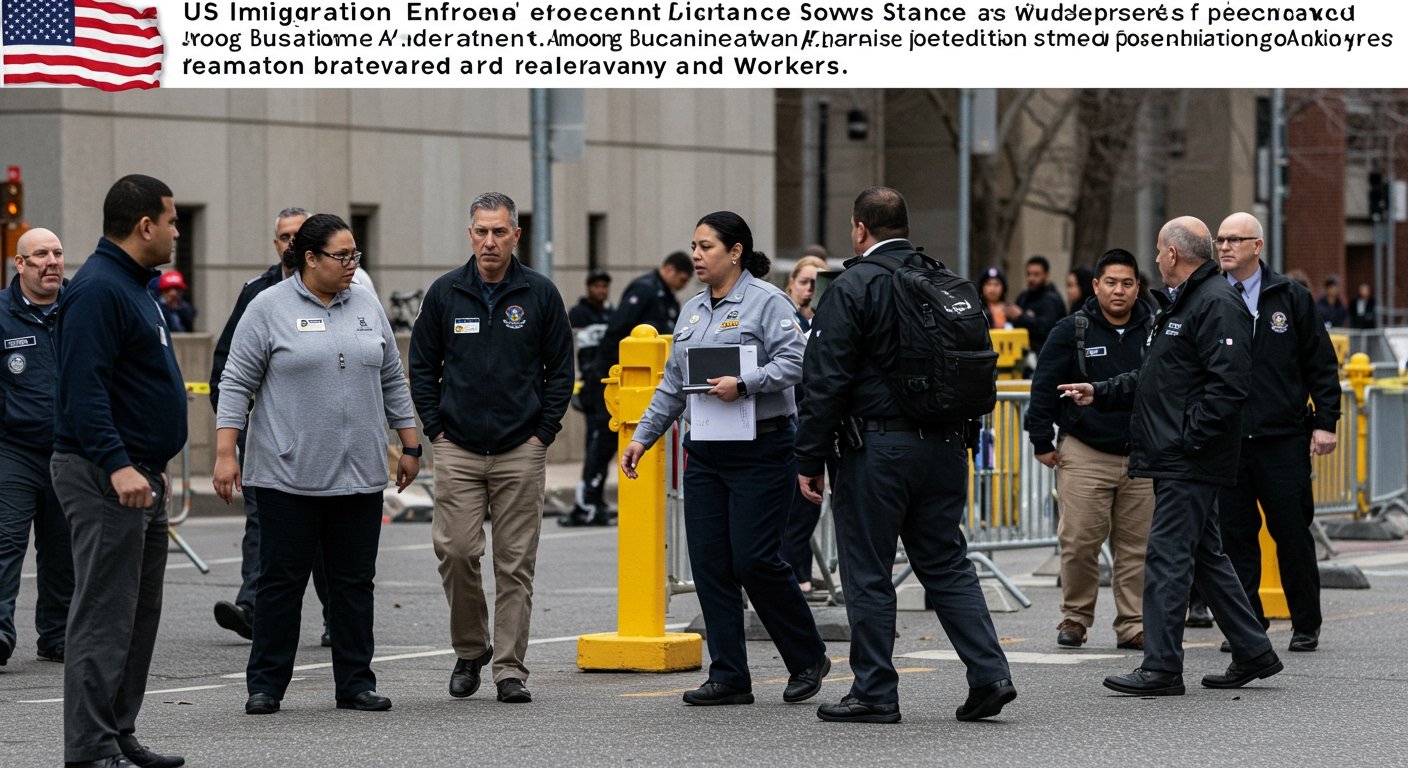Washington D.C. – A brief period of perceived calm surrounding U.S. immigration enforcement raids appears to have evaporated, replaced by renewed uncertainty among businesses and heightened fear among workers across key American industries. Industries ranging from agriculture to hospitality had reportedly experienced a sense of relief last week following media reports that President Donald Trump had ordered a temporary pause to immigration raids disrupting their operations.
Respite Ends Amid Official Contradiction
However, that tentative respite concluded abruptly on Wednesday, June 18, 2025. Tricia McLaughlin, Assistant Secretary of the Department of Homeland Security, issued a statement that directly contradicted the notion of a widespread pause or designated “safe spaces” for certain industries. McLaughlin’s statement asserted, “There will be no safe spaces for industries who harbor violent criminals or purposely try to undermine (immigration enforcement) efforts. Worksite enforcement remains a cornerstone of our efforts to safeguard public safety, national security and economic stability.”
This conflicting messaging from administration officials has created significant confusion and distress, leaving businesses grappling with unpredictability and workers fearful of enforcement actions.
Industry Reactions and Worker Fears
Industry leaders have voiced alarm over the renewed uncertainty. Rebecca Shi, CEO of the American Business Immigration Coalition, an organization representing 1,700 employers, noted that the situation has reignited “fear and worry once more” among businesses dependent on immigrant labor. This sentiment underscores the precarious position employers find themselves in, attempting to manage operations while facing potential workforce disruptions.
Worker communities are also profoundly affected. Jennie Murray, CEO of the National Immigration Forum, highlighted the deep concerns among immigrant parents who fear workplace raids could lead to their detention and subsequent separation from their children. This fear creates a climate of instability for families and communities, extending beyond the workplace itself.
Intensified Enforcement Strategy
The current environment of heightened tension follows an apparent intensification of immigration enforcement efforts in the weeks leading up to the reported, albeit brief, pause. According to reports, Stephen Miller, White House deputy chief of staff, allegedly implemented a significantly increased daily arrest quota for U.S. Immigration and Customs Enforcement (ICE). The purported target was set at 3,000 arrests per day, a substantial surge compared to the average of 650 per day recorded during the first five months of Trump’s second term. This dramatic increase in operational targets signals a clear directive for more aggressive enforcement.
Tangible Impacts on Businesses
The effects of this stepped-up enforcement are already being felt on the ground, impacting business operations directly. Reports detail instances such as ICE agents present at farms in unspecified locations, allegedly pointing assault rifles, creating a climate of intimidation. More concretely, a raid at a dairy farm in New Mexico resulted in a drastic reduction of its workforce, plummeting from 55 employees to just 20. Such incidents cripple businesses’ ability to maintain necessary staffing levels and operational capacity.
Furthermore, rumors of impending raids can be as disruptive as actual enforcement actions. In Washington state, during the critical cherry harvest season, reports indicate that fear stemming from raid rumors caused foreign-born workers to stay away from farms. One agricultural operation, anticipating its usual crew of 150 pickers, reportedly found itself with only 20, severely impacting its harvest potential and economic viability.
Economic Implications and Labor Market Dynamics
The broader economic implications of the current enforcement climate are a significant concern. Douglas Holtz Eakin, president of the American Action Forum, observed that the fear generated by detentions, even of legally present individuals, is discouraging even lawful immigrants from seeking or maintaining employment. This fear factor introduces a friction point in the labor market, particularly challenging given the relatively low U.S. unemployment rate, which stands at 4.2%.
Experts like Holtz Eakin suggest that the current approach to immigration policy is clashing with fundamental economic objectives, potentially hindering growth and stability by disrupting labor supply in key sectors already facing workforce challenges. The uncertainty sown by conflicting statements and the reality of intensified enforcement actions appear poised to continue impacting industries and the broader economy in the coming weeks and months.





